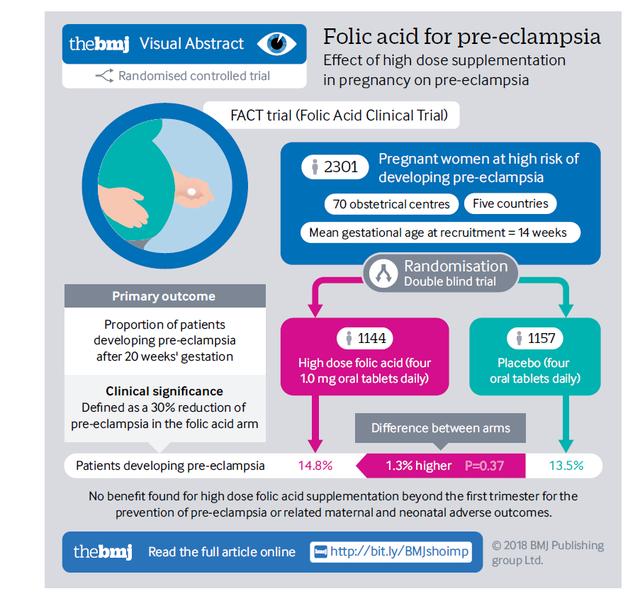Are Mothers with the TT MTHFR Gene Variant More Likely to Develop Pregnancy-Related Hypertension?
How Should Moms with the TT Gene Choose Their Folate Supplement?
Individuals with the TT Folate Metabolism Gene are at a Higher Risk for Pregnancy-Related Hypertension
MTHFR, or 5,10-methylenetetrahydrofolate reductase, is a crucial enzyme in the body's folate metabolism, responsible for converting 5,10-methylenetetrahydrofolate into the directly absorbable 6S-5-methyltetrahydrofolate. There are three common MTHFR 677 genotypes: CC, CT, and TT, with the TT form having only 35% of the activity of the normal CC type. Approximately 30% Chinese people have the TT genotype, which is associated with a significant folate metabolism impairment.

At the 13th European Nutrition Conference (FENS 2019), experts highlighted that pregnant women with the TT genotype of the MTHFR C677T polymorphism are at a higher risk of developing pregnancy-related hypertension.

A research team enrolled pregnant women at the end of their first trimester from prenatal clinics in Northern Ireland and the Republic of Ireland. They conducted MTHFR genotype testing and blood pressure measurements following current clinical guidelines.
The study revealed that while the systolic and diastolic blood pressure of most pregnant women typically decreases between weeks 8 and 16 of pregnancy, this pattern was not observed in women with the TT genotype. After accounting for factors such as maternal age, gestational age, and body mass index, it was found that at 12 weeks of gestation, women with the TT genotype had higher average systolic and diastolic blood pressure levels.

A previous meta-analysis also established a significant correlation between the C677T polymorphism of the MTHFR gene and an increased risk of pregnancy-related hypertension. Women carrying the T allele (TT or CT) were found to have a 1.21 times higher risk of pregnancy-related hypertension (95% confidence interval, 1.01-1.44).

A 2021 study further confirmed that among patients with pregnancy-related hypertension, the proportion of those with the TT genotype was higher than in the control group, and these patients exhibited higher levels of HCY (homocysteine) and a higher incidence of adverse pregnancy outcomes.

How Can Moms with the TT Folate Gene Reduce the Risk of Pregnancy-Related Hypertension Through Folate Supplementation?
Considering the strong association between the TT MTHFR gene variant and the risk of pregnancy-related hypertension, along with the crucial role of folate during pregnancy, strategic folate supplementation remains a viable approach to mitigate this risk.
For mothers with MTHFR gene variations, direct supplementation with 6S-5-methyltetrahydrofolate is recommended. This form of folate bypasses the metabolic limitations imposed by the TT genotype and is readily absorbed by the body. Particularly, Magnafolate, a form of Naturalization folate, is produced without the use of harmful substances like formaldehyde and p-toluenesulfonic acid. It also strictly controls the levels of impurities such as JK12A and 5-methyltetrahydrofolate, ensuring a non-toxic profile. Magnafolate can rapidly elevate serum and red blood cell folate levels, making it an ideal active folate source for mothers and infants.

Reference:
1. Chinese Medical Association Cardiovascular Disease Branch Women's Heart Health Group, & Chinese Medical Association Cardiovascular Disease Branch Hypertension Group. (2020). Expert Consensus on the Management of Blood Pressure in Pregnancy-Induced Hypertensive Disorders (2019). Chinese Journal of Cardiovascular Disease, 48(3).
2. Yang B, Liu Y, Li Y, Fan S, Zhi X, et al. Geographical Distribution of MTHFR C677T, A1298C and MTRR A66G Gene Polymorphisms in China: Findings from 15357 Adults of Han Nationality. PLoS ONE. 2013;8(3):e57917. doi:10.1371/journal.pone.0057917.2.
3. Psara, E., et al. "Investigation of Blood Pressure during the First Trimester of Pregnancy in relation to the MTHFR C677T Polymorphism." Proceedings of the Nutrition Society, vol. 79, no. OCE2, 2020, p. E585. Cambridge University Press. https://doi.org/10.1017/S0029665120005340.
4. Kosmas, I. P., Tatsioni, A. T., & Ioannidis, J. P. A. Association of C677T polymorphism in the methylenetetrahydrofolate reductase gene with hypertension in pregnancy and pre-eclampsia: a meta-analysis. Journal of Hypertension, 2004; 22(9): 1655–1662. https://doi.org/10.1097/00004872-200409000-00004.
5. Zhang L, Sun L, Wei T. Correlation between MTHFR gene polymorphism and homocysteine levels for prognosis in patients with pregnancy-induced hypertension. Am J Transl Res. 2021;13(7):8253-8261.
6. Lian Zenlin, Liu Kang, Gu Jinhua, Cheng Yongzhi, et al. Biological Characteristics and Applications of Folate and 5-Methyltetrahydrofolate. Chinese Food Additives, 2022, Issue 2.
7. Lamers Y, Prinz-Langenohl R, Braumswig S, Pietrzik K. Red blood cell folate concentrations increase more after supplementation with [6S]-5-methyltetrahydrofolate than with folic acid in women of childbearing age. Am J Clin Nutr. 2006;84:156-161.
#L-Methylfolate#5-MTHF#folate#
L-5-methyltetrahydrofolate calcium#SSW#Magnafolate#151533-22-1#active folate#妊高#HCY#同型半胱氨酸#妊娠期高血压#PIH#

 Español
Español Português
Português  русский
русский  Français
Français  日本語
日本語  Deutsch
Deutsch  tiếng Việt
tiếng Việt  Italiano
Italiano  Nederlands
Nederlands  ภาษาไทย
ภาษาไทย  Polski
Polski  한국어
한국어  Svenska
Svenska  magyar
magyar  Malay
Malay  বাংলা ভাষার
বাংলা ভাষার  Dansk
Dansk  Suomi
Suomi  हिन्दी
हिन्दी  Pilipino
Pilipino  Türkçe
Türkçe  Gaeilge
Gaeilge  العربية
العربية  Indonesia
Indonesia  Norsk
Norsk  تمل
تمل  český
český  ελληνικά
ελληνικά  український
український  Javanese
Javanese  فارسی
فارسی  தமிழ்
தமிழ்  తెలుగు
తెలుగు  नेपाली
नेपाली  Burmese
Burmese  български
български  ລາວ
ລາວ  Latine
Latine  Қазақша
Қазақша  Euskal
Euskal  Azərbaycan
Azərbaycan  Slovenský jazyk
Slovenský jazyk  Македонски
Македонски  Lietuvos
Lietuvos  Eesti Keel
Eesti Keel  Română
Română  Slovenski
Slovenski  मराठी
मराठी  Srpski језик
Srpski језик 








 Online Service
Online Service